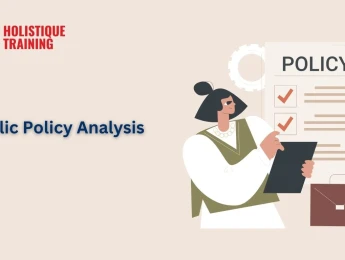This advanced course is designed for professionals aiming to transform customer data into actionable business insights. The Customer Data Analytics and Decision Making programme provides a comprehensive understanding of how to collect, interpret, and apply customer data to enhance marketing performance, improve customer experiences, and support data-driven strategic decisions.
Participants will explore analytical frameworks, key performance metrics, predictive modelling, and behavioural analytics, learning how to leverage modern tools to uncover patterns and opportunities in customer behaviour. By integrating analytics into decision-making processes, attendees will gain the ability to make informed choices that drive profitability, retention, and sustainable growth.
By the end of this course, participants will be able to:
- Understand the role of data analytics in modern customer-centric organisations.
- Collect, manage, and clean customer data for accurate analysis.
- Apply analytical tools and methods to uncover customer insights.
- Build data-driven strategies for improving marketing, retention, and customer experience.
- Use predictive and prescriptive analytics to inform business decision-making.
This course is ideal for:
- Marketing Managers and Analysts.
- CRM and Data Professionals.
- Business Development Executives.
- Product Managers and UX Researchers.
- Entrepreneurs and Decision-Makers in Customer-Focused Businesses.
The course combines case-based discussions, analytical simulations, and hands-on exercises with real-world customer data scenarios. Participants will work through the full data cycle—from collection and analysis to strategic interpretation—using practical tools and techniques.
Day 5 of each course is reserved for a Q&A session, which may occur off-site. For 10-day courses, this also applies to day 10
Section 1: Introduction to Customer Data Analytics
- Understanding the importance of data in customer-centric organisations.
- Key types of customer data: behavioural, transactional, demographic, and psychographic.
- Data sources: CRM systems, digital analytics, social media, and surveys.
- The link between analytics, decision-making, and business growth.
Section 2: Data Management and Processing
- Data collection methods and ethics: privacy, consent, and GDPR compliance.
- Data cleaning, structuring, and preparation for analysis.
- Introduction to data warehouses and CRM databases.
- Using business intelligence (BI) tools for efficient data processing.
Section 3: Analytical Tools and Techniques
- Overview of descriptive, diagnostic, predictive, and prescriptive analytics.
- Statistical analysis and visualisation methods for customer data.
- Segmenting customers using RFM analysis, clustering, and personas.
- Identifying customer lifetime value (CLV) and churn patterns.
Section 4: From Insights to Decisions
- Turning analytical findings into actionable strategies.
- Building dashboards and key metrics (KPIs) for customer analytics.
- Decision-making models supported by data: rational vs. behavioural decisions.
- Communicating insights effectively to non-technical stakeholders.
Section 5: Predictive Models and Data-Driven Strategies
- Applying machine learning for customer prediction: purchase, churn, and sentiment.
- Building predictive models with regression, classification, and decision trees.
- Integrating analytics into marketing automation and personalisation.
- Measuring the impact of data-driven decisions on business performance.
Upon successful completion of this training course, delegates will be awarded a Holistique Training Certificate of Completion. For those who attend and complete the online training course, a Holistique Training e-Certificate will be provided.
Holistique Training Certificates are accredited by the British Accreditation Council (BAC) and The CPD Certification Service (CPD), and are certified under ISO 9001, ISO 21001, and ISO 29993 standards.
CPD credits for this course are granted by our Certificates and will be reflected on the Holistique Training Certificate of Completion. In accordance with the standards of The CPD Certification Service, one CPD credit is awarded per hour of course attendance. A maximum of 50 CPD credits can be claimed for any single course we currently offer.
- Course Code PM1-125
- Course Format Classroom, Online,
- Duration 5 days













